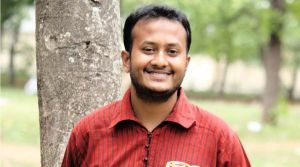
Publisher:
Bonnie King
CONTACT:
Newsroom@Salem-news.com
Advertising:
Adsales@Salem-news.com

~Truth~
~Justice~
~Peace~
TJP
Apr-26-2012 00:27

 TweetFollow @OregonNews
TweetFollow @OregonNews
US: Eliminate Forced Labor and Forced Child Labor in Uzbekistan
Letter by William Gomes Salem-News.comSalem-News Human Rights Ambassador William Gomes contacts Hillary Clinton over forced labor in Uzbsikstan.
 U.S. Sec. of State Hillary Clinton |
(HONG KONG) - Child labor in Uzbekistan is a problem that its own government seems to have no interest in controlling. Young children, each year, are forced to participate in a mandated cotton production system. The United States government should raise a voice in this matter and call for an end to this practice.
 |
Local rights activists including Gulshan Karaeva, Nodir Akhatov, and Elena Urlaeva, attempted to monitor the use of forced labor during the 2011 cotton harvest in various regions of Uzbekistan. They were arbitrarily detained by the government and in some cases threatened with prosecution.
Year after year, the Uzbek govt. mandates that farmers grow cotton, and children from elementary, middle school, high school, trade schools and university students, are required by local provincial government offices (khokimiyats) to plant, weed and harvest to meet their assigned quotas.
According to outside observers from the Uzbek-German Forum for Human Rights, UNICEF, the State Department and local residents, the khokimiyats forcibly mobilized labor, including children as young as age 10 in the provinces of Andijan, Bukhara, Djizzak, Fergana, Kashkadarya, Khorezm, Namangan, Samarkand, Surkhandarya, Syrdarya and Tashkent.
Kids aren't the only people forced into the Uzbek labor program, in fact state-sponsored forced labor in Uzbekistan has consistently included adults as well.
In fact this aspect of the problem cuts right into the heart of the nation's business industry, by forcing employers to send their employees to pick cotton. Last year, employees from the General Motors plant in Andijan reportedly were forced to take “voluntary vacations” to harvest cotton.
| “ |
Once again in 2011, the government of Uzbekistan fully implemented its state-controlled forced labor system for cotton production. As in previous years, the Uzbek government required farmers to grow cotton, and local provincial government offices (khokimiyats) mobilized students from elementary schools, middle schools, high schools, trade schools and universities to plant, weed and harvest to meet their assigned quotas. According to reports by the the Uzbek-German Forum for Human Rights, local observers, UNICEF and reporting by the State Department, the khokimiyats forcibly mobilized labor, including children as young as age 10 in the provinces of Andijan, Bukhara, Djizzak, Fergana, Kashkadarya, Khorezm, Namangan, Samarkand, Surkhandarya, Syrdarya and Tashkent. State-sponsored forced labor in Uzbekistan has consistently included adults as well. City and district administrators instruct business owners to send their employees to pick cotton. Last year, employees from the General Motors plant in Andijan reportedly were forced to take “voluntary vacations” to harvest cotton. Local rights activists such as Gulshan Karaeva, Nodir Akhatov, and Elena Urlaeva who attempted to monitor the use of forced labor during the 2011 cotton harvest in various regions of Uzbekistan were arbitrarily detained and in some cases threatened with prosecution. The State Department’s 2011 Trafficking in Persons Report identified negligible progress by the government of Uzbekistan to end the practice of forced labor, and it identified the government quota system as a root cause of the forced labor system of cotton production. Uzbekistan remained on the Tier 2 Watch List in 2011 for the fourth consecutive year, presumably because the Uzbek government had “a written plan that, if implemented, would constitute making significant efforts to comply with the Trafficking Victims Protection Reauthorization Act’s (TVPRA) minimum standards for the elimination of trafficking and is devoting sufficient resources to implement the plan” (22 USC § 7107). However, according to Ambassador George Krol, with whom we met recently at the Global Chiefs of Missions Conference, the Uzbek government has not accomplished much. The 2011 TIP report also recommended that the government of Uzbekistan invite a mission of the ILO to monitor the 2011 cotton harvest. This did not happen. In 2012, the government of Uzbekistan has demonstrated no progress toward eliminating forced labor and child labor in cotton production. The most recent plan adopted by the Uzbek government essentially calls for self-policing, including a government-organized monitoring of the upcoming harvest. At the January 25, 2012 public hearing on the Uzbek government’s continued eligibility for trade benefits under the U.S. Generalized System of Preferences, Ambassador Ilhom Nematov again denied openly to U.S. government representatives that there was any forced labor, stating, “It’s not forced labor because, you know, today literacy in Uzbekistan is 100 percent.” He also denied the existence of the cotton production quota system and confirmed that the Uzbek government had no plans to invite a mission of the ILO to monitor the 2012 cotton harvest. Given its continued denials that forced labor exists and its role in organizing the forced labor cotton production system, the Uzbek government’s self-monitoring plan cannot possibly constitute “significant efforts” to eliminate forced labor, as required by the TVPRA (22 USC § 7107). As a result, there are no grounds for granting another waiver of the legislatively-required downgrade of Uzbekistan to Tier 3 status in the 2012 TIP report. I understand that on May 2-3, 2012, the Uzbek government will convene representatives of the United Nations Children’s Fund, the ILO Moscow Office and the European Commission in Tashkent to discuss Uzbekistan’s compliance with its international treaty obligations. While the meeting is a welcome dialogue, it can only be considered an indication of progress if it results in a formal invitation from the Uzbek government to the ILO to conduct unfettered monitoring of the 2012 cotton harvest. I strongly urge that in conjunction with this meeting the U.S. government inform the authorities in Tashkent that the only way the State Department can justify waiving a downgrade of Uzbekistan to Tier 3 in this year’s TIP report is if Uzbekistan commits to invite the ILO to conduct unfettered monitoring of this fall’s cotton harvest. I thank you again for your support and advocacy in promoting human rights and eliminating forced labor and forced child labor. I understand that you have a number of important issues to consider with respect to Uzbekistan, but I firmly believe that human rights, including forced labor and forced child labor, are fundamental concerns that cannot be ignored. |
” |

Salem-News.com Human Rights Ambassador William Nicholas Gomes is a Bangladeshi journalist, human rights activist and author was born on 25 December, 1985 in Dhaka. As an investigative journalist he wrote widely for leading European and Asian media outlets.
He is also active in advocating for free and independent media and journalists’ rights, and is part of the free media movement, Global Independent Media Center – an activist media network for the creation of radical, accurate, and passionate telling of the truth. He worked for Italian news agency Asianews.it from year 2009 to 2011, on that time he was accredited as a free lance journalist by the press information department of Bangladesh. During this time he has reported a notable numbers of reports for the news agency which were translated into Chinese and Italian and quoted by notable number of new outlets all over the world.He, ideologically, identifies himself deeply attached with anarchism. His political views are often characterized as “leftist” or “left-wing,” and he has described himself as an individualist anarchist.
 |
 |
 |
 |
 |
 |
 |
Articles for April 25, 2012 | Articles for April 26, 2012 | Articles for April 27, 2012


Salem-News.com:

googlec507860f6901db00.html
Quick Links
DINING
Willamette UniversityGoudy Commons Cafe
Dine on the Queen
Willamette Queen Sternwheeler
MUST SEE SALEM
Oregon Capitol ToursCapitol History Gateway
Willamette River Ride
Willamette Queen Sternwheeler
Historic Home Tours:
Deepwood Museum
The Bush House
Gaiety Hollow Garden
AUCTIONS - APPRAISALS
Auction Masters & AppraisalsCONSTRUCTION SERVICES
Roofing and ContractingSheridan, Ore.
ONLINE SHOPPING
Special Occasion DressesAdvertise with Salem-News
Contact:AdSales@Salem-News.com
Terms of Service | Privacy Policy
All comments and messages are approved by people and self promotional links or unacceptable comments are denied.
COLLI April 26, 2012 3:27 pm (Pacific time)
One of the worst possible crimes against humanity is the theft of childhood from children. Once again, greed rears its ugly head and our professional political sugar-wouldn't-melt-in-my-mouth power-mongers avert their eyes. If Hillary ever expects to get elected, she had better start showing some semblance of humanitarian instinct. We know she can throw ashtrays and do backroom deals but does she even care one tiny bit about the children of the world?
[Return to Top]©2026 Salem-News.com. All opinions expressed in this article are those of the author and do not necessarily reflect those of Salem-News.com.